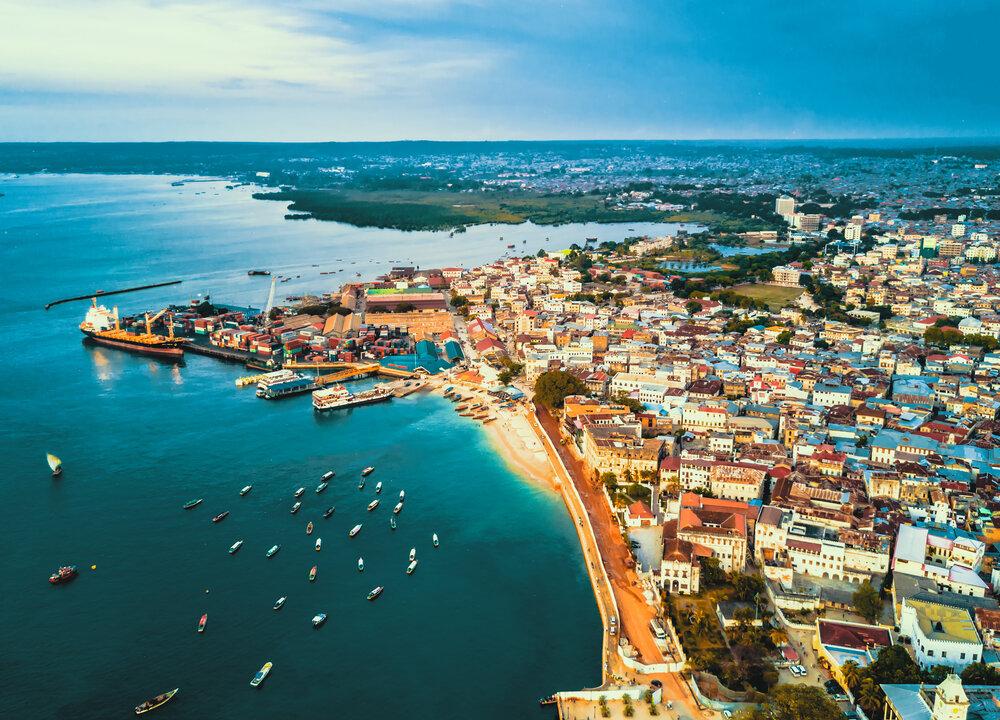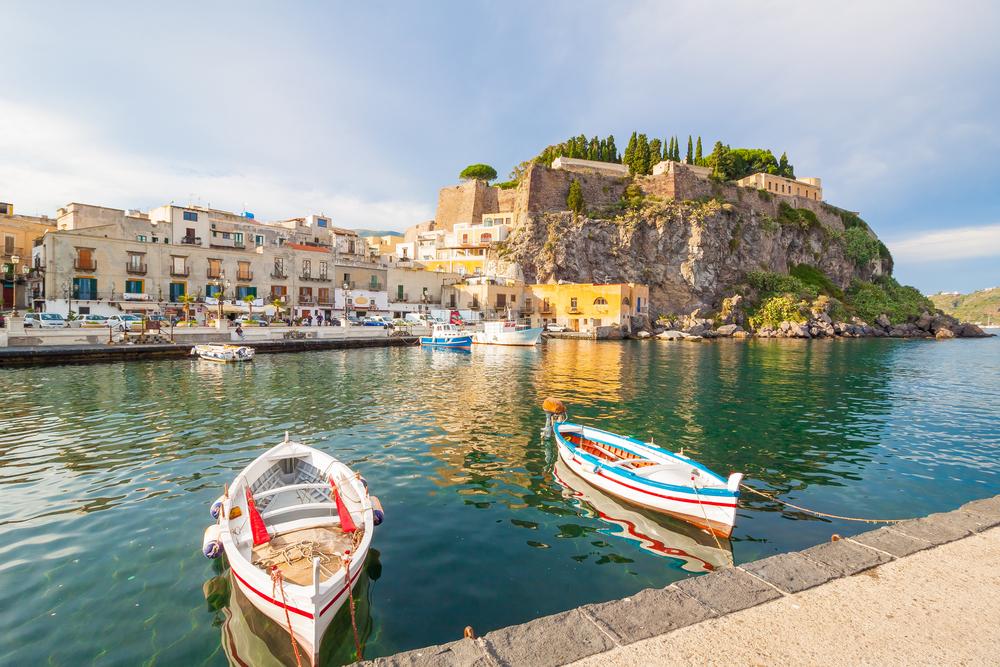Hard times these past few years have forced a competitive filtering-reset to take place in tourism. Since the economic crisis began in 2008, some businesses have shined, while others have ended up stagnated or worse, bankrupt for many factors. However dismal the crisis has been though, in the end the customer/traveler is starting to benefit. Looking at countries like Greece, and tourism competitors in the southern Europe region, provides us with some answers as to how any entity can survive when the competition gets really tough. The question “what differentiates a successful tourism marketing campaign”, begs to be answered.
It’s so often a sad reality in a competitive business world that sometimes potentially wonderful businesses just lose. But when one player does go down, when they do lose the edge, an evident winner always shines. As we are seeing now in the European tourism industry, the end result of efficiency versus inefficiency, equals traveler satisfaction or dissatisfaction. And, what holds true for a single hotel or travel entity is also true on the country level.
A Greek Touristic Renaissance
 On a regional scale, there’s no better indicator of what’s possible where recovering market is concerned than Greece in between the years 2008 and 2014. Looking at Greece, we see a top competitor for tourism dollars hit hard by a world economic crisis, then bounding back, while some others remain stagnated. From 2006 through early 2008 Greece tourism managed an average yearly growth rate of between 3.5% and 6.5 percent. Then in mid 2008 the bottom fell out, with growth declining by as much as 11% in 2009. Then as early as 2011 some revenues climbed back to even above 2008 numbers (SETE). For 2012 Greece once again grabbed almost 3% of the total European travel market. Competitively, only Turkey managed to recoup in such a manner. Croatia, a main competitor in the region, even though that country spends more per capita to gain tourists, the jewel of the Adriatic has made no headway in gaining on Greece. Even EU entry has not spurred Croatia to anywhere near Greece’s level of re-emergence.
On a regional scale, there’s no better indicator of what’s possible where recovering market is concerned than Greece in between the years 2008 and 2014. Looking at Greece, we see a top competitor for tourism dollars hit hard by a world economic crisis, then bounding back, while some others remain stagnated. From 2006 through early 2008 Greece tourism managed an average yearly growth rate of between 3.5% and 6.5 percent. Then in mid 2008 the bottom fell out, with growth declining by as much as 11% in 2009. Then as early as 2011 some revenues climbed back to even above 2008 numbers (SETE). For 2012 Greece once again grabbed almost 3% of the total European travel market. Competitively, only Turkey managed to recoup in such a manner. Croatia, a main competitor in the region, even though that country spends more per capita to gain tourists, the jewel of the Adriatic has made no headway in gaining on Greece. Even EU entry has not spurred Croatia to anywhere near Greece’s level of re-emergence.
I recently spoke with World Travel Awards executive, Sion Rapson (above at right), about the ways competitiveness for businesses, countries, and regions impacts the industry. His comments about tourism from a marketing and advertising perspective, they bear mentioning here. On “awards” and notoriety, for instance, Rapson reflected WTA’s excellence quotient during these tough times:
“World Travel Awards is now in its 21st year. During more than two decades of growth we have seen lean periods, and it is no secret the last few years have been tough for a lot of organizations out there. However, perversely, this has worked in the interests of WTA. Organizations seek nominations at our Gala Ceremonies, realizing the significant benefits a victory can bring – this has seen interest rise steadily over the years.”
All things considered, Greece geography, history and culture represent a “static” value for travelers seeking Aegean wonders etc., but tourism policy (strategy and investment) is akin to business management down at the single hotel level. Put mildly, marketing of any tourism commodity is one big advantage that has been neglected during this current economic crunch. At least, that is, where budget and effective campaigning is concerned. For instance, Turkey and Greece have maintained their marketing spend even in the face of this money crunch. A recent Greece tourism campaign by the Greek National Tourism Organization (GNTO) under the slogan “Greece All Time Classic”, was unveiled by Tourism Minister Olga Kefalogianni. I make mention of this campaign because “efficiency” is the motif all tourism business should approach. Kefalogianni took the ministry job facing a 40% reduction in budget, but still produced dramatic visitor increases for Greece turning to digitally promoting her country as never before, as she put it to Travel Weekly;
“Greece is not just a traditional destination. We have everything. We don’t have the budget for traditional media. Our campaign will be mainly online.”

It’s important to note here, when Olga Kefalogianni (below at WTM London) took office Greece was in a mess brand and money wise. Negative press worldwide, rumors of chaos brought about through debt, corruption, and austerity made Greece the least likely European nation to overcome adversity, but it’s happened. Turkey, another country focused on digital marketing through the efforts of their ministry and GoTurkey, has been very effective in retaining that country’s position. Albeit, Turkey’s real infrastructure, typical advertising, and relative economic situation were different from Greece’s, clearly the value for tourists has been the focus there too. On the negative side, Cyprus, another destination hit hard by negative press and economic woes, that destination has lagged far, far behind in recouping visitors.
Croatia, Cyprus and Other Competitive Strategies
Croatia, as I mentioned earlier, has been a gem of a touristic destination compared to other former Yugoslavian countries. Even with the immeasurable beauty of Zagreb, the Adriatic beaches, and a tourism sector that engrosses 20% plus of the GDP there, the land of the Illyrians is stagnant growth wise. Since becoming part of the EU, Croatia has slumped rather than skyrocketed, as some predicted it would. Interestingly, many of European countries have employed the same marketing consult over the last decade. THR Innovative Tourism Advisors, has at one time or other consulted Greece, Croatia, Spain and many other clients in addressing marketing efficiency. This fact sheds some light on one reason a dynamic tourism effort like Croatia’s does not quite live up to competing one in Greece. The GDP graph below from the Croatian Bureau of Statistics is telling.

This stagnant GDP you see above is but one hint of Croatia’s, and other country’s difficulty in boosting either resurgent tourism numbers, or literally emerging as a force in Europe travel. Croatia, to be certain, is one of the most beautiful and desirable places to visit in the world, but the industry beneath the marketing plan is not yet ready for “prime time”, as the saying goes. A rock bottom consumer price index, fantastic tourism promotion, or even ascendancy to the EU can generate the hotel rooms and services needed to support sustainable tourism. This story at Balkanist reveals the “darker side” of Croatia travel, a hotel industry on the brink of disaster. Put simply and bluntly, the “land of 1000 islands” cannot keep 12 million tourists happy for long with aging, dilapidated accommodations. We know for a fact Croatia’s government has been grappling with streamlining renovations and construction projects in general, but a great many heavy factors weigh on the country’s tourism maintaining positive growth for the moment. Where hotels fill the bill in many countries accomodating travelers, Croatia and others see economy accommodations like flats and houses fill in where aging hotels cannot.
So Croatia’s being a special case is not so much about bad marketing or strategy, as it is about existing conditions continuing. And by no means is the Croatian tourism problem unique to the region, Cyprus has a double dose of inefficiency brought on by poor economics and politics, and by the same infrastructure situation Croatia faces, only worse. Northern Cyprus’ situation, the dividing friction in between Turkish and Greek inhabitants, and an aging hotel infrastructure make even Visit Cyprus’ best marketing outreach see only limited success. A study by PricewaterhouseCoopers (PWC) in July 2013 even outlined the island’s problems marketing tourism there, even despite the vast pluses that magnificent destination has. In the end, aging hospitality and other infrastructure variables, combined with what PWC called “significant space for improvement” in marketing the island, put Cyprus tourism business right where they are this summer. I quote from the PWC study where Internet or digital marketing is concerned:
“...the websites of Cypriot tourist organisations in Cyprus (including social media) do not seem to enjoy the desired traffic. It is indicative that 85% of their respondents stated that they have not visited the official sites of the Cyprus Tourism Organisation whilst, 66,8% did not visit any other official websites...”
In our business we’ve seen these “losing” scenarios play out over, and over again not only in eastern and southeastern Europe, but in their more table sister markets of the west and north as well. This neglecting of the most economical promotional tools is not just a country-centric problem either, ask any marketer or public relations expert who’s had the pleasure of convincing an independent hotel owner to spend money on social media! Business owners tend to pay lip service to modern evangelism for their products, and at the same time their competitors usually excel at deploying good marketing. This is not a sales pitch for our company’s services, frankly we’re too busy to take on much more work. Digital marketing, especially going into the emerging mobile era, is a fact of business, and we can prove it.
The Conclusion is NOT All Greek
To add to this story of Greek successes in 2014, I discussed with a noted friend, hotelier, and business associate, Lefteris Karatarakis, whose family has been in the hotel business on Crete for decades, how his business manages to thrive even in these turbulent times. Karatarakis, who is the director of Lato Boutique Hotel in Heraklion, commented:
“Businesses with the right combination of refined revenue management, cost control mechanisms, and appropriate marketing and advertising, these tend to prevail at any moment, especially when challenges arise. For hospitality, the focus also has to always be on the guest. Ultimately success for Greek hoteliers and tourism businesses has to be providing these traditional values, and letting travelers know about it. In this way, success in travel is a simple process.”
In a very real way, Karatarakis’ methods are a near perfect template for other countries or businesses seeking ultimate success going forward. I had the pleasure of discussing more, these dynamic strategies for forward tourism momentum with one of the Greek National Tourism Organization (GNTO) executives in charge of the marketing effort, Angela Verela, Director of the Marketing Dept. for the GNTO. I asked the director about how Greece’s effort are differentiated, to which she responded:
“Visitgreece.gr is a state portal, that is of non- commercial activity. Therefore the visitgreece.gr team are driven by one and only ambition: to let the world see Greece the way we see it. We strongly believe that Greece is a wonderful place to be, either on a short trip or for a longer stay. We are also aware of the fact that most visitors have had the opportunity to visit a few places only, and through visitgreece.gr we would like to introduce them to Greece as a whole.”
To conclude, the business or promoting one’s hotel or country in tourism and hospitality is really no different from seeking clients or associations in person. It helps to have your best suit of clothes on, and to be prepared for any and all questions. But more importantly, the value or proposition behind your communications needs to be firm. In the case of Gross Domestic Product for a country tourism organization, it only makes sense to contribute as large a resource as the sector represents to your economy. As a last reference on this, I spoke late this morning with the Editor of Eye for Travel, Pamela Whitby and contributor to The Economist, on the B2B side of value presentation. Whitby has this to add:
“Whether you are a hotel, restaurant or destination marketing organisation, like Visit Greece, what your customers are looking for is good information to base their travel decisions on. That’s what many in the business of travel seem to forget and those that do will lose.”
What differentiates one advertising or marketing practice from a competitor is often just a reflection of core values. In the case of Greece, the same Aegean wonder the ancient world developed, rests on their laurels in a way. Greece is home of hospitality in the first place, and they scarcely need me as an evangelist, though I am one naturally. Maybe it’s just easy to reflect such value?
Additional image credit: Minister Olga Kefalogianni - courtesy the Minister’s Facebook profile.




